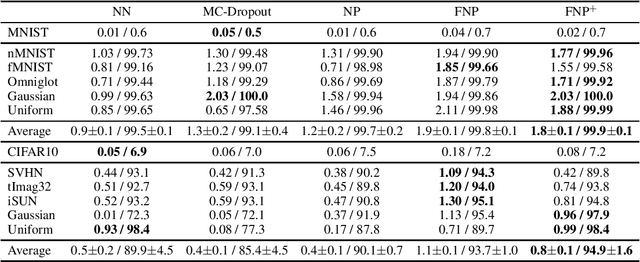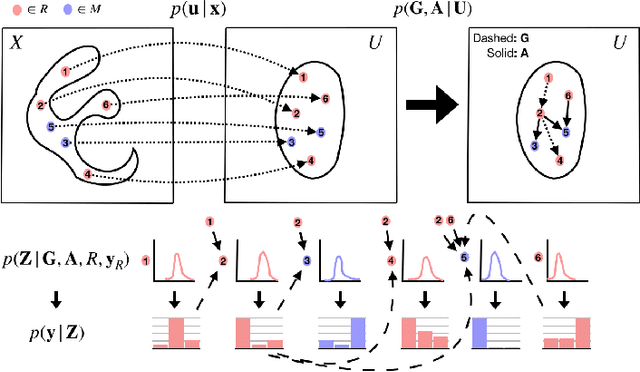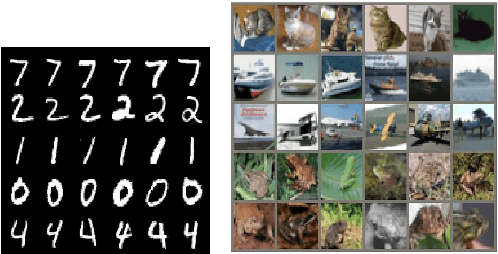The Functional Neural Process
Paper and Code
Jun 19, 2019



We present a new family of exchangeable stochastic processes, the Functional Neural Processes (FNPs). FNPs model distributions over functions by learning a graph of dependencies on top of latent representations of the points in the given dataset. In doing so, they define a Bayesian model without explicitly positing a prior distribution over latent global parameters; they instead adopt priors over the relational structure of the given dataset, a task that is much simpler. We show how we can learn such models from data, demonstrate that they are scalable to large datasets through mini-batch optimization and describe how we can make predictions for new points via their posterior predictive distribution. We experimentally evaluate FNPs on the tasks of toy regression and image classification and show that, when compared to baselines that employ global latent parameters, they offer both competitive predictions as well as more robust uncertainty estimates.
 Add to Chrome
Add to Chrome Add to Firefox
Add to Firefox Add to Edge
Add to Edge